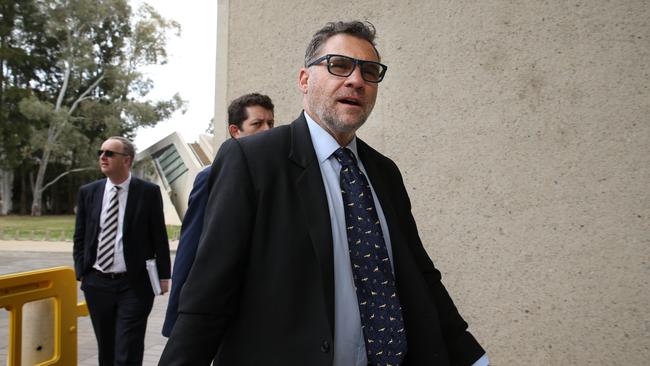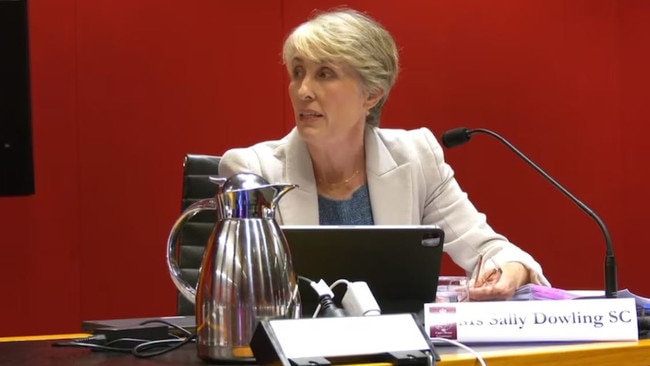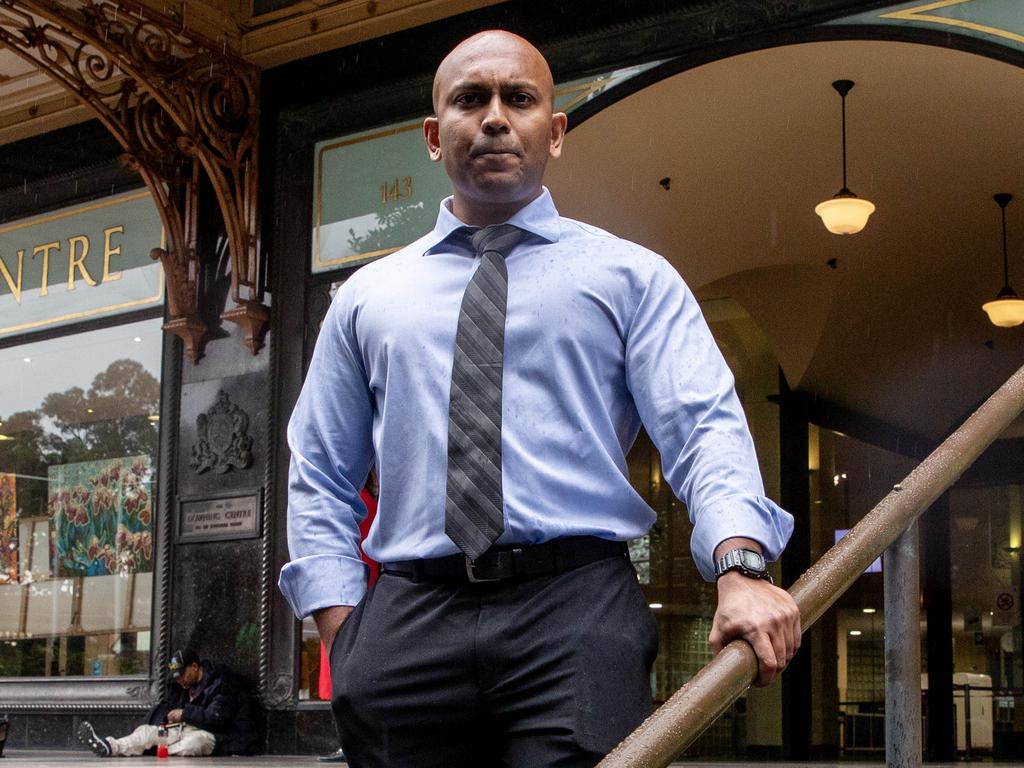
But without Newlinds’ comments the spotlight would not be on whether prosecutions are heading to court when they should not. Given the damage done to innocent lives by these prosecutions, this is not an inconsequential issue for the country.
First a recap. When granting costs to a wrongly prosecuted defendant in December last year, Newlinds said this: “I do wish to record that I am left with a deep level of concern that there is some sort of unwritten policy or expectation in place in the Office of the Director of Public Prosecutions of this state to the effect that if any person alleges that they have been the subject of some sort of sexual assault then that case is prosecuted without a sensible and rational interrogation of that complainant so as to at least be satisfied that they have a reasonable basis for making that allegation, which would include to at least being satisfied that the complainant has a correct understanding of the legal definition of sexual assault or sexual intercourse without consent.”
He raised concerns about what he apparently saw as a prosecutor failing “to perform the important role of filtering hopeless cases out of the system”, leading to the defendant spending eight months in jail for a crime he did not commit.

Judge Newlinds undoubtedly blundered in a number of key respects; for example, when he invited the solicitor advocate who was prosecuting the case before him to discontinue proceedings.
The judge compounded this error when he complained that it was “a substantial flaw in the system set up by the DPP of this state” to require solicitor advocates to get the approval of the chief prosecutor or their deputy before discontinuing proceedings.
Unfortunately for Newlinds, a cursory examination of the DPP Act would have revealed that under the act only the director or their deputy has power to discontinue proceedings. The statute prohibits further delegation of the power to discontinue meritless prosecutions. This was indeed a rookie error by the judge.
However, as the NSW Judicial Commission acknowledged, “no one judge in the state could claim (or be expected) to be familiar with the entirety of the statute book, or even the entirety of the statute book in a particular area of the law. This is perhaps especially so in the District Court.”
While Newlinds undoubtedly should have checked the DPP Act before making such colourful criticism of how matters are run in the DPP’s office, like many whistleblowers the judge made an important point of principle: how can a solicitor advocate, consistent with their duty to prosecute fairly and honestly, continue to run a case they think is hopeless? Is this fair to the court or the complainant – let alone the accused?
There is an alternative method of discontinuance that requires a prosecutor to consult with the complainant and then seek a direction from the court. Both these hurdles to pulling a prosecution are difficult. Indeed, criminal prosecutors inside the offices of DPPs in different jurisdictions have told me it’s easier to continue the proceedings once a defendant has been charged than to jump through the hoops to discontinue a trial, even if the case is manifestly hopeless.
In another example where Newlinds erred but nonetheless made a profound point that should be ringing through the chambers of parliament, the judge made intemperate remarks about the law on so-called tendency evidence, including evidence of prior false complaints by the complainant.
His comments, the Judicial Commission found, could be seen as lacking the impartiality and balance required of judges.
Fair point. But a law that makes it hard, if not impossible, to introduce evidence that the complainant has a history of making false complaints is rotten law, which Newlinds was substantially correct about – even if he made his point in the wrong way.
For sections of the media to celebrate Newlinds’s excoriation is a reflection more on them than him. Last month The Sydney Morning Herald was handed a leaked copy of the secret Judicial Commission’s report against Newlinds.
Good on them for getting the scoop and reporting it. It’s a shame the state-based newspaper, along with other media outlets, has shown not an ounce of curiosity by reporting public comments by several judges, including Newlinds, about the meritless prosecutions damaging the lives of defendants and complainants.
In September 2022 NSW District Court judge Penelope Wass awarded costs to a defendant but not before putting on the public record her concerns: “The bringing and continuation of unmeritorious cases in abrogation of the prosecutor’s responsibilities … imposes a burden not only on the criminal justice system but on all those involved in it, including complainants and, not the least of whom, any person against whom that prosecution either commences or continues.”
In yet another costs case arising from a sexual assault trial – R v SGH – Judge Wass found another unreasonable prosecution had been launched.
In R v Cowled; R v Wilson, District Court judge Gordon Lerve expressed concerns that too many sexual assault cases coming to court in recent years “were in fact doomed to failure from the outset”.
Later that year, the same judge granted costs to a defendant in a sexual assault case that the judge said was “doomed to failure”.
It’s true Newlinds went further, his language was injudicious and he made mistakes. So do many judges. It’s curious that the Judicial Commission acted so swiftly and harshly against Newlinds given The Australian has been told the judicial oversight body has dismissed other more serious complaints. Is a complaint by Joe Citizen and his lawyers taken less seriously than that of the chief prosecutor?
The other oddity about this matter is that the media normally loves a whistleblower, especially those crazy-brave enough to lift the lid on institutional failures that harm innocent people. Not here. No siree.
It seems this is an attempt to manufacture ideological uniformity while turning a blind eye to serious concerns about reckless prosecutions in sexual assault cases.
Whistleblowers are frequently a bit wild; taking on the establishment normally requires a lack of concern for normal graces and favours. While this newspaper reported Newlinds’ concerns, other media mostly turned away. They snapped back to attention when Dowling complained about Newlinds. But if it weren’t for his comments there might never have been a review by the ODPP into reportedly 400 cases awaiting trial.
The dark cloud over the prosecution of sexual cases in this country has grown bigger after the Judicial Commission’s report into Newlinds and the celebratory tone in response. Not to mention the recommended permanent removal of Newlinds from criminal trials.
Also benched is NSW District Court judge Peter Whitford. After the judge raised concerns about what he saw as meritless prosecutions in February, Dowling lodged a complaint against him with the Judicial Commission.
Who’s next? Judge Wass? Judge Lerve?
And what are we left with? A longer backlog of cases waiting trial dates. And if the public flogging of Newlinds leads other judges to shut up, we will be none the wiser about injustices happening under our noses.
This courageous judge deserves our thanks, even if he got a few things wrong.





Anyone concerned about the operation of our criminal justice system should thank judge Robert Newlinds. Sure, the NSW District Court judge copped a serve recently from the NSW Judicial Commission following a complaint lodged by chief prosecutor Sally Dowling SC.